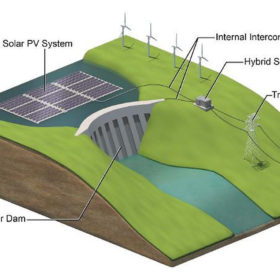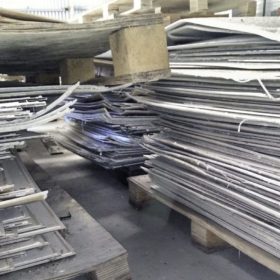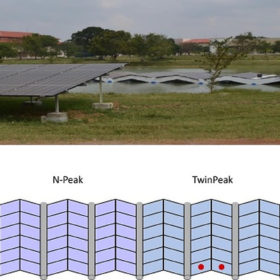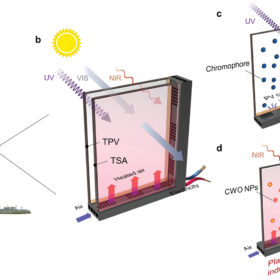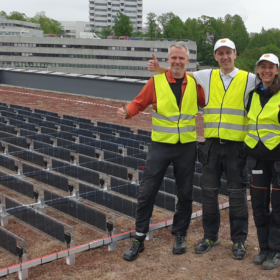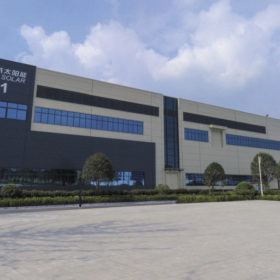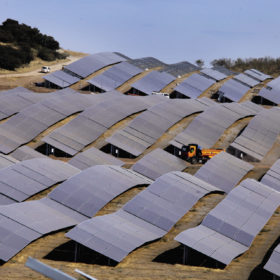Hybridizing floating solar with hydropower
Scientists from the National Renewable Energy Laboratory (NREL) have said that the combination of floating solar with hydropower could reduce PV curtailment.
Recycling options for PV panels, batteries could drive circular economy, says NREL
Renewable hardware that lasts longer and uses fewer materials could bolster recycling efforts and help to build an effective circular economy for solar and battery technologies, says the US National Renewable Energy Laboratory (NREL).
Single-axis trackers on commercial rooftops increase generation by 37%
Alion Energy trackers thread the return-on-investment needle with productivity gains from white roofs and bifacial modules, while design aggressively maximizes module count.
CEA-INES develops 18.95%-efficient flexible perovskite solar panels
French researchers have developed PV modules with an area of 11.6 square centimeters for indoor applications. They said the achieved efficiency level marks a world record for a flexible perovskite device larger than 10 square centimeters.
Novel floating PV system design from Norway
Norwegian scientists have tested a new floating PV system concept at a water reservoir in Sri Lanka. The system is made of composite beams to support the solar panels and high-density polyethylene (HDPE) pipes to provide buoyancy.
Solar window generates electricity, thermal energy
A research team in Hong Kong has built a solar window that can generate power on the external side via a luminescent solar concentrator and thermal energy on the internal side via transparent solar absorbers.
Vertical rooftop PV pilot goes online in Norway
Over Easy Solar AS has developed a rooftop PV system with two generation peaks – one in the morning at 11 am, and one in the evening at 7 pm. It has been deployed on a school building.
China’s solar cell capacity exceeds 361 GW
Tongwei has also secured another massive polysilicon order and Golden Glass has invested in more heterojunction solar cell capacity. Furthermore, China’s National Energy Administration (NEA) said 23.7 GW of new solar was deployed in China in the first five months of the year.
Spanish court orders Iberdrola to dismantle 60% of 500 MW operational PV plant
A Spanish court has ruled that Spain’s largest operational PV project – the 500 MW Nuñez de Balboa solar plant – occupies a piece of land that was illegally expropriated. Project owner Iberdrola must now shut down a large portion of the installation.
EV battery can reach 98% charge in less than 10 minutes
Enovix has shown that its US-made silicon anode lithium-ion batteries can charge from 0% to 80% in just five minutes.
